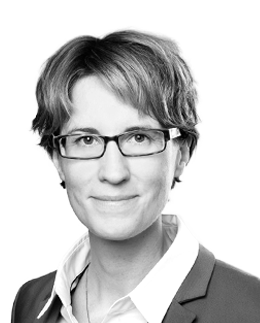Kai Mühleck ist seit 2008 am DZHW tätig und Projektleiter und wissenschaftlicher Mitarbeiter in der Abteilung "Bildungsverläufe und Beschäftigung". Seine Forschungsinteressen sind wissenschaftliche Karrieren, Tracking von Graduierten, monetäre und nicht-monetäre Bildungserträge, Geschlechterdifferenzen, soziale Ungleichheit und international vergleichende Hochschulforschung. Von 2001-2008 war er wissenschaftlicher Mitarbeiter an der Humboldt-Universität zu Berlin. Er promovierte 2007 an der Humboldt-Universität im Fach Soziologie. Er hat Politikwissenschaft, Soziologie und Volkswirtschaftslehre an den Universitäten Heidelberg und Manchester studiert und 2001 an der Universität Heidelberg abgeschlossen (M.A.).

Dr. Kai Mühleck
Abteilung Bildungsverläufe und Beschäftigung
wissenschaftlicher Mitarbeiter
- 0511 450670-156
Liste der Projekte
Liste der Publikationen
Nacaps 2018.Briedis, K., Lietz, A., Ruß, U., Schwabe, U., Seifert, M., ... & Hoffstätter, U. (2024).Nacaps 2018. Daten- und Methodenbericht zur National Academics Panel Study 2018 (1.-4. Befragungswelle – Promovierende). Hannover: DZHW. https://doi.org/10.21249/DZHW:nac2018:2.0.0 Abstract
Nacaps steht für „National Academics Panel Study“ („Nationales Akademikerpanel“) und ist eine vom Bundesministerium für Bildung und Forschung (BMBF) geförderte Längsschnittstudie zu Promovierenden und Promovierten in Deutschland. Ziel des Projekts ist es, sowohl deutschlandweit repräsentative Querschnittsdaten zu den Qualifizierungsbedingungen als auch Längsschnittdaten zu den individuellen Erwerbs- und Karriereverläufen Promovierender und Promovierter innerhalb und außerhalb der Wissenschaft zu erheben. Die Nacaps-Studienreihe ist dabei als Multi-Kohorten-Panel-Design konzipiert. Nacaps 2018 bildet als erste Kohorte den Auftakt dieser Studienreihe. [...] Vollständiger Abstract: https://doi.org/10.21249/DZHW:nac2018:2.0.0 |
Challenging the intuition: Is a same-gender supervisor beneficial for doctoral students?Mühleck, K., & Schwabe, U. (2024).Challenging the intuition: Is a same-gender supervisor beneficial for doctoral students? Soziale Welt, 26, 280-340. https://doi.org/10.5771/9783748925590-280 Abstract
It continues to be a puzzle that women are disproportionally often dropping out of academic careers. Researchers and policymakers have suggested that same-gender supervisors are important for tightening this ‘leaky pipeline’. Especially in subjects with a strong overrepresentation of men, it seems likely that female supervisors work as positive role models and help preventing discrimination. Anticipating this effect, female doctoral students might also prefer supervisors of the same gender. Therefore, we ask how widespread a gender match is between doctoral student and supervisor in Germany and whether a gender match between supervisors and doctoral students is beneficial for the doctorate and for a possible scientific career thereafter. |
Higher education and active citizenship in five European countries: How institutions, fields of study and types of degree shape the political participation of graduates.Mühleck, K., & Hadjar, A. (2023).Higher education and active citizenship in five European countries: How institutions, fields of study and types of degree shape the political participation of graduates. Research in Comparative and International Education, 18(1), 32-54. https://doi.org/10.1177/17454999231157160 |
EUROGRADUATE Pilot Survey 2018.Mühleck, K., Meng, C., Unger, M., & Hoffstätter, U. (2021).EUROGRADUATE Pilot Survey 2018. Data and Methods Report on the EUROGRADUATE Pilot Survey conducted in 2018/2019. Hannover: FDZ-DZHW. Abstract
Die EUROGRADUATE-Umfrage ist eine einmalige Pilotbefragung unter Hochschulabsolvent*innen der Kohorten 2016/17 und 2012/13 in acht europäischen Ländern (Österreich, Tschechien, Deutschland, Griechenland, Kroatien, Litauen, Malta und Norwegen). Das Pilotprojekt strebt an, den Grundstein für eine europaweite Absolvent*innenumfrage zu legen. Die Befragung ermöglicht Erkenntnisse zu den Erfahrungen europäischer Absolvent*innen während ihres Studiums und deren Auswirkungen auf ihr Berufsleben sowie ihr Leben als europäische Bürger*innen. Absolvent*innen wurden ein Jahr (t +1, Kohorte 2016/17) bzw. fünf Jahre (t +5, Kohorte 2012/13) nach Studienabschluss befragt. [...] Vollständiger Abstract: https://doi.org/10.21249/DZHW:egr2018:2.0.0 |
EUROGRADUATE Pilot Survey. Technical assessment and feasibility of a full rollout.Mühleck, K., Meng, C., Oelker, S., Unger, M., Lizzi, R., Maurer, S., ... & Wessling, K. (2020).EUROGRADUATE Pilot Survey. Technical assessment and feasibility of a full rollout. Luxembourg: Publications Office of the European Union. https://doi.org/10.2766/85072 |
Étude pilote EUROGRADUATE. Évaluation technique de l’enquête pilote EUROGRADUATE et étude de faisabilité de sa mise en oeuvre à grande échelle. Résultats principaux.Mühleck, K., Meng, C., Oelker, S., Unger, M., Lizzi, R., Maurer, S., ... & Wessling, K. (2020).Étude pilote EUROGRADUATE. Évaluation technique de l’enquête pilote EUROGRADUATE et étude de faisabilité de sa mise en oeuvre à grande échelle. Résultats principaux. Luxembourg: Office des publications de l’Union européenne. https://doi.org/10.2766/939744 |
EUROGRADUATE Pilot Survey. Technical assessment and feasibility of a full rollout. Executive summary.Mühleck, K., Meng, C., Oelker, S., Unger, M., Lizzi, R., Maurer, S., ... & Wessling, K. (2020).EUROGRADUATE Pilot Survey. Technical assessment and feasibility of a full rollout. Executive summary. Luxembourg: Publications Office of the European Union. https://doi.org/10.2766/581640 |
How does higher education foster active citizenship? Qualities of higher education and the political participation of graduates.Mühleck, K., & Oelker, S. (2020).How does higher education foster active citizenship? Qualities of higher education and the political participation of graduates. In S. Noorda, P. Scoot, & M. Vukasovic (Eds.), Bologna Process Beyond 2020: Fundamental Values of the EHEA (pp. 331-338). Bologna: Bononia University Press. Abstract
The paper analyses the relationship between characteristics of higher education and political participation. In addition to differences due to fields of subjects we observe a strong relationship with extra-curricular activities such as international mobility, practical training, and voluntary activities. Our results indicate that such activities as well as civic skills help strengthening the political participation of higher education graduates. |
EUROGRADUATE Pilot Survey. Design and implementation of a pilot European graduate survey.Meng, C., Wessling, K., Mühleck, K., & Unger, M. (2020).EUROGRADUATE Pilot Survey. Design and implementation of a pilot European graduate survey. Luxembourg: Publications Office of the European Union. https://doi.org/10.2766/629271 |
Gender Differences in Higher Education from a Life Course Perspective: Transitions and Social Selectivity between Upper Secondary School and first Post-doc Position.Lörz, M., & Mühleck, K. (2019).Gender Differences in Higher Education from a Life Course Perspective: Transitions and Social Selectivity between Upper Secondary School and first Post-doc Position. Higher Education, 77 (3), 381-402. https://doi.org/10.1007/s10734-018-0273-y |
Promoting the Relevance of Higher Education. Main report.Vossensteyn, H., Kolster, R., Kaiser, F., File, J., Huisman, J., Seeber, M., ... & Gwosć, C. (2018).Promoting the Relevance of Higher Education. Main report. Luxembourg: Publications Office of the European Union. https://doi.org/10.2766/048735 Abstract
The main objective of this study is to provide a comprehensive analysis of the relevance of higher education and how this is promoted in various countries in Europe and beyond. On the basis of a review of relevant literature, policy documents and databases, consultation with national experts and eight in-depth country case studies that included interviews with many national stakeholders, this study seeks to answer questions such as which policy levers do member states use to promote higher education relevance? Which national policies concerning higher education relevance appear to be effective and good practice examples? Which indicators are informative in assessing higher education relevance at system level? |
Liste der Vorträge & Tagungen
09/2017 - 03/2018
Mitglied des kommissarischen Leitungsteams der Abteilung "Bildungsverläufe und Beschäftigung" am Deutschen Zentrum für Hochschul- und Wissenschaftsforschung
06-12/2015
Stellvertretender Arbeitsbereichsleiter "Steuerung, Finanzierung, Evaluation" am Deutschen Zentrum für Hochschul- und Wissenschaftsforschung (Elternzeitvertretung)
seit 2009
Projektleiter am DZHW (vormals HIS-Institut für Hochschulforschung)
seit 2008
Wissenschaftlicher Mitarbeiter am DZHW (vormals HIS-Institut für Hochschulforschung)
2007
Promotion zum Dr. phil. an der Philosophischen Fakultät III der Humboldt-Universität zu Berlin (Fach Soziologie); Dissertationsschrift "Gerechtigkeit und Wahlverhalten"
2005 - 2008
Ko-Leiter der deutschen Arbeitsgruppe des International Social Justice Project (ISJP) an der Humboldt-Universität zu Berlin
2003 - 2007
Promotionsstudium im Fach Soziologie an der Humboldt-Universität zu Berlin
2001 - 2008
Wissenschaftlicher Mitarbeiter am Lehrbereich für Empirische Sozialforschung des Instituts für Sozialwissenschaften, Humboldt-Universität zu Berlin; dort tätig im International Social Justice Project (ISJP)
2001
Magister Artium an der Universität Heidelberg in Politikwissenschaft (Hauptfach), Volkswirtschaftslehre und Soziologie; Abschlussarbeit zur Schulpolitik in den deutschen Bundesländern
1995 - 2001
Studium der Politikwissenschaft, Volkswirtschaftslehre und Soziologie an den Universitäten Heidelberg und Manchester





























